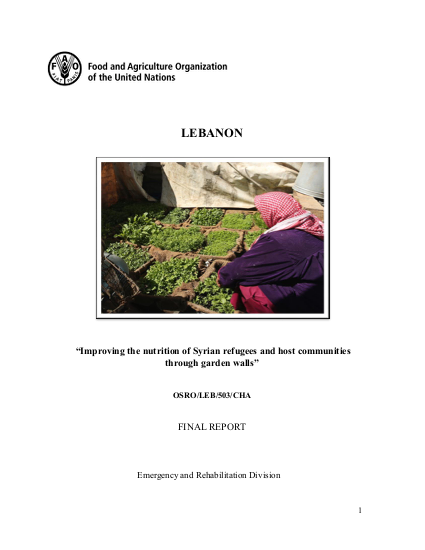
The ongoing crisis in Syria has put tremendous pressure on the coping capacity of both refugees and their host communities, impacting Lebanon’s agricultural economy and food production capacity, particularly in the most affected areas of northern and eastern Lebanon. The Government of Lebanon does not allow refugees to cultivate land, which has led to increased food insecurity rates among Syrian refugees and a critical need to assess alternative methods of food production for refugees and vulnerable host communities.
In response, the United Nations Office for the Coordination of Humanitarian Affairs, through the Country-based pooled funds, contributed USD 148 698 for the Food and Agriculture Organization of the United Nations (FAO) project OSRO/LEB/503/CHA, entitled “Improving the nutrition of Syrian refugees and host communities through garden walls”. The project was implemented from 15 September 2015 to 15 June 2016. The overall objective of the project was to promote diversified and quality food for vulnerable landless households through of deployment of micro-gardens.
The project targeted poor and vulnerable households representing a total of 170 direct beneficiaries (76 vulnerable Lebanese and 94 displaced Syrians), living in Akkar, Tripoli, and the Bekaa. FAO was responsible for overall coordination and implementation and the American University of Beirut (AUB) was the sub-implementing partner.
